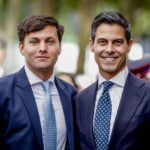Pol Gascó, a 21-year-old from Segur de Calafell, Spain, envisions a life where he drives a light blue Lamborghini, earns over $10,000 a month, and resides in Miami. To reach these aspirations, he immerses himself in podcasts about Bitcoin, frequently revisits Think and Grow Rich, and meticulously maintains a “dream map” beside his computer. This collage features images of €50 bills, the Statue of Liberty, a luxurious mansion with an infinity pool, and a model of his dream car. “The more you visualize it, the more you attract it,” he believes.
Table of Contents
ToggleBreaking the Cycle of Poverty
Encouraged by friends he meets in local parking lots, Pol is determined to break his family's “chain of poverty.” He aspires to improve himself, regularly exercises, and pays for financial education, despite some critics referring to it as a “crypto-cult.” His goal is to attract wealth not just for himself but also to support his grandmother and help others escape poverty. Each night, he diligently writes, “I'm grateful to be a diamond and earn 10,000 a month,” reinforcing his financial ambitions.
Pol is the central figure in +10K, a documentary short by Gala Hernández López, who earned a Caesar Award in 2024 for her previous work, La mécanique des fluides. Hernández's first film, which explores the life of an incel, premiered at the Cannes Film Festival and went on to compete in various international forums. In +10K, she examines the lives of young individuals captivated by the allure of financial success.
A Journey into Financial Culture
Hernández's interest in documenting financial aspirations was sparked by an article titled The Crypto-sect Has Kidnapped Our Children, which highlighted families' experiences with IM Academy, a financial organization that attracted over 9,000 attendees in Badalona, Spain. Fascinated by the high attendance of young people at these events, she sought to explore their motivations and beliefs about wealth.
Through extensive research, including discussions with families and participation in financial education events, Hernández discovered Pol Gascó, a young man whose empathy and innocence stood out. He demonstrated a genuine desire to assist his grandmother and help others attain wealth, reflecting a community-oriented perspective.
The cameras follow Gascó to a major crypto-influencer event at Madrid‘s Movistar Arena, where he joins thousands chanting together, captivated by the prospect of financial success. Hernández notes, “The fact that these gatherings can mobilize so many people is indicative of the struggles within the system. These young individuals are dealing with a generation that feels lost and precarious, finding solace in the magical allure of money.”
The Defining Question of Success
The quest for financial stability is not unique to Pol; in contemporary culture, many feel pressured to earn substantial incomes. For instance, in the recent film Materialists, characters demand annual earnings of $80,000 to $100,000 from potential partners. This sets the stage for a viral discussion about what income is necessary for happiness, revealing generational disparities in perceptions of financial success.
Previous beliefs suggested that happiness did not correlate directly with income. However, recent findings by Nobel laureates Daniel Kahneman and Angus Deaton indicate that an annual income of around $100,000 may be optimal for achieving contentment. This notion resonates particularly with younger demographics. According to a 2024 Empower survey, Gen Z believes financial success requires an income of €500,000, while Millennials and Baby Boomers estimate €180,000 and €85,000, respectively.
Anthropologist Emilio Santiago Muiño attributes the widening gap in these perceptions to structural inequalities, the triumph of neoliberal culture, and the overall precariousness faced by younger generations. His recent essay, Vida de ricos (The life of the rich), discusses the need for a new approach to wealth that prioritizes community well-being.
In her documentary, Hernández engages Pol in conversations about living well and the complexities of financial aspirations, encouraging viewers to reflect on their own relationships with money and happiness.










